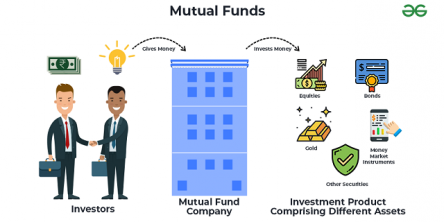Ways to Exchange Money Without Paying Exorbitant Fees

As a result of the pandemic's pent-up consumer demand, Americans are preparing to travel once more. If you're planning a trip to another nation for your next holiday, you'll want to know how to receive foreign currency without paying extra fees.
It is undeniably crucial to keep an eye out for currency exchange conversion fees, foreign transaction fees, and other expenditures when traveling internationally. As part of the daily rush of global trade, currency exchange rates are intricate and continuously fluctuate. Based on the daily ups and downs of the markets, one bank, merchant, or currency exchange outlet may be able to offer you a little better deal on currency exchange rates.
Before leaving the United States, get cash from your bank.
Obtaining cash from your bank or credit union in the United States before leaving on your trip is one of the best strategies to reduce currency exchange expenses. Most major U.S. banks will have foreign currency to sell you depending on which nation (or countries) you're traveling to. Wells Fargo, for example, offers 70 currencies for use in over 100 countries, while Bank of America trades currencies for over 100 nations.
You may be able to receive cash from your local bank branch, or you may be able to order currency online or over the phone and have it delivered to your home. Some currencies may be accessible for same-day conversion depending on your bank, where you live, and which country's currency you require. Other currencies that aren't as commonly requested may require a few days' notice or more.
If you prepare ahead, you may be able to receive cash at a better exchange rate by negotiating directly with your bank in the United States before your trip.
Stay away from airport currency exchange kiosks.
It can be tempting to buy foreign currency at an airport kiosk or currency exchange counter if you don't have time to get cash at the bank before your trip. These locations are convenient, but their exchange rates are often substantially lower than those offered by your home bank.
For example, if you're heading to the United Kingdom and your bank gave you £72 per $100, the airport kiosk might only give you £67 per $100, costing you more money in the form of less pounds for your dollar buy sell. You'd have an extra £5 in your pocket if you'd done the transaction at your home bank. Airport kiosks may also impose extra fees, which are frequently buried within the inferior exchange rates they provide when converting your dollars to euros, pounds, pesos, or another currency. If you're traveling on short notice and require foreign currency in cash at the airport, it can be worth it to pay the extra fees for convenience. Avoid airport kiosks and other exchange counters in highly touristed regions if you can plan ahead—their business relies on charging extra for being a convenient, last-minute choice.
Use a credit card to pay, but keep in mind that foreign transaction costs may apply.
When you arrive in your destination country, you may wish to save your foreign currency cash and use your credit or debit card to make as many transactions as possible.
However, this can lead to another issue: the expense of international transactions. Depending on your bank and the card you have in your wallet, your credit card or debit card may charge a foreign transaction fee of up to 3% on every purchase made in another country.
This means that if you spend $100 at a restaurant in London, Paris, or Tokyo, your bank or credit card company will add $3 to your bill.
Avoid Currency Conversion Fees by Paying in the Local Currency.
Some retailers will allow you to pick whether to pay in local currency or US dollars for your purchase.
This isn't something that happens with every purchase. However, after swiping your card, the store may display you a page that gives you the option of paying in US dollars or in the local currency.
If you ever find yourself in this circumstance, always choose the local currency to pay. You will be charged an additional currency conversion fee if you choose to pay in dollars. You'll almost certainly obtain a bad exchange rate as well. It's possible that the merchant's point-of-sale system will make a mistake.
Similar Articles
Save money on home & business essentials with bulk wholesale! Discover tips, product categories, and deals to maximize your savings.
Loud budgeting has taken over social media, with people openly discussing spending habits, saving strategies, and financial struggles. While this trend encourages transparency, it also adds pressure to meet certain expectations
Securing your financial future has become a necessity in today's world, and investing in mutual funds is one of the most popular ways to grow your wealth over time. Managing your money and investing in potential funds has become convenient and seamless with the help of the right online platforms
Gone are the days when you had to carry a wallet full of money when traveling somewhere. Now, cashless travel has become a reality due to technological developments, making it easier for travelers to manage their cash when they’re out and about.
Discover how ACH and eChecks revolutionize payments—offering cost-efficiency, security, and convenience while addressing cybersecurity challenges and future trends.
NPS (National Pension Scheme) is a popular option for those looking to save for retirement and get a steady income through an annuity after retirement. It is supported by the Indian Government and is based on contributions made regularly. The final pension will depend on the money that you build by the time of retirement and the portion used to purchase an annuity.
Debt collection can be stressful for both the debtor and the creditor. Howеvеr, undеrstanding thе tactics commonly usеd by dеbt collectors can help you protеct yoursеlf from potential lawsuits. Whether you’re a business owner collecting unpaid invoices or an individual dealing with personal debt, being informed about the legal and ethical boundaries of debt collection is crucial.
In the fast-paced world of international trade, how can businesses ensure smooth and efficient movement of goods across borders? The answer lies in expert facilitation services that specialize in navigating complex regulations and optimizing supply chain processes.
Managing cash flow is critical for any business's survival and growth. It involves tracking the money coming in and going out of the business to ensure it can meet its financial obligations.









